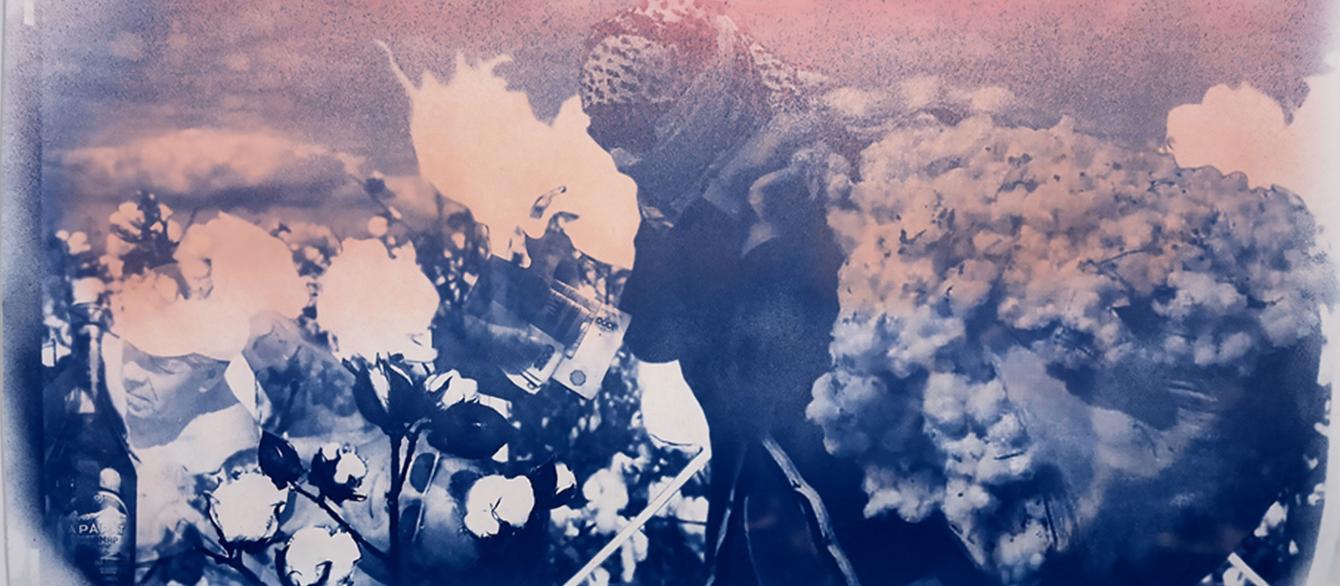Farrah Karapetian’s exhibition “The Things They Shared” opens with the artist in conversation with Madison Brown, John R. and Barbara Robinson Family Curatorial Fellow in Photography at the Harvard Art Museums.
The Davis Center's art space is dedicated to rotating exhibitions presenting artists and shows from the regions of the center's research focus. “The Things They Shared” is an excerpt from a project called "Fieldwork," a series of photographs representing the narratives of people involved in the cotton harvest in Uzbekistan and Mexicali, cyanotypes on cotton rag, and silver gelatin prints. The work resists the documentary impulse even as it mimics anthropological strategies. It problematizes a representational history mainly drawn in favor of institutional interests by focusing on the banalities of personal memory.
Material here is part of the work’s tight matrix of significance. "Pay Locals" is printed on cotton rag paper. The photo-sensitive emulsion applied to that support, cyanotype, is one of photography’s original fixed processes, utilized by scientific researchers such as Anna Atkins in the 19th century, as Russia gained control over the Kazakh steppe. It is also one of the more ecologically harmless technologies in photographic processing, and requires the least infrastructure (sun and water) to develop. The five silver gelatin prints of objects take material permission from the silver halide emulsion painted onto paper that Max Alpert used to communicate his images of the construction of the Fergana Canal in 1940.
Karapetian initiated this project in June 2022 in Tashkent, Uzbekistan, on an Art Prospect Network Fellowship from CEC Artslink. She spoke about the project at the Davis Center in 2023 and published a book chapter called “You Don’t Have to Believe Me” in Performative Representation of Working Class Laborers: They Work Hard for the Money, in 2024. With colleagues in Mexico, especially the Archivo Familiar, she has developed the western part of the project and spoken at the Colorado River Archival Encounter at the University of Arizona. With colleagues in Uzbekistan, she hopes to resolve the work as a group exhibition, developed on residency through Art Station Uzbekistan, Silk Road University, in 2025.
A reception will follow the talk.
Accessibility
The Davis Center for Russian and Eurasian Studies at Harvard University encourages persons with disabilities to participate in its programs and activities. If you anticipate needing any type of accommodation or have questions about the physical access provided, please contact us at 617-495-4037 or daviscenter@fas.harvard.edu in advance of your participation or visit. Requests for Sign Language interpreters and/or CART providers should be made at least two weeks in advance if possible. Please note that the Davis Center will make every effort to secure services but that services are subject to availability.




